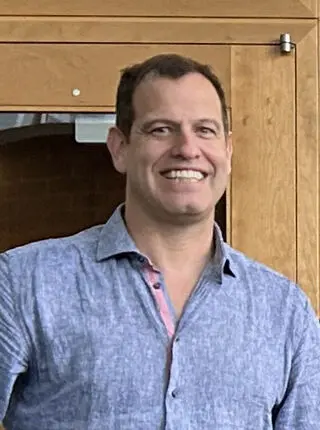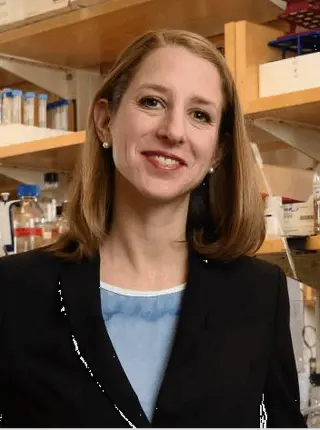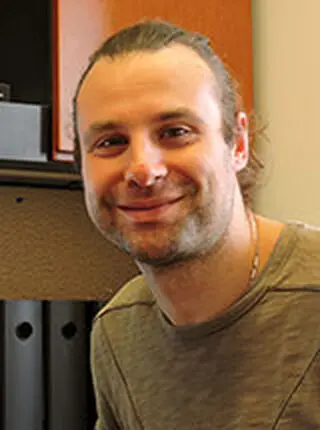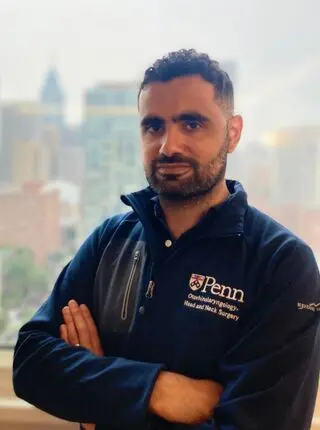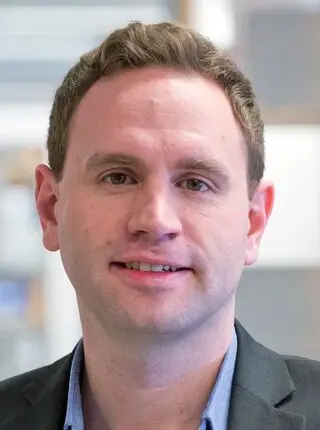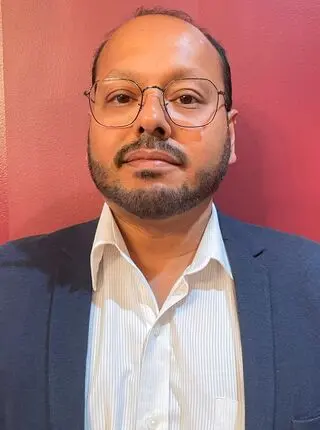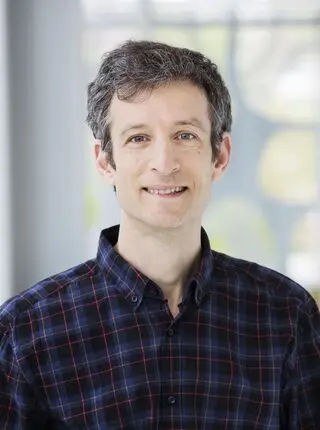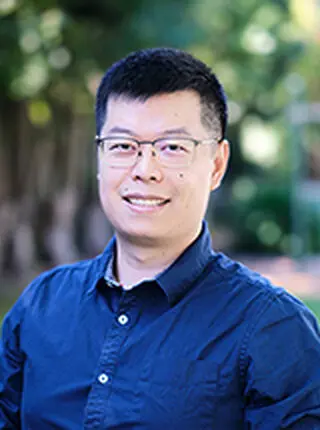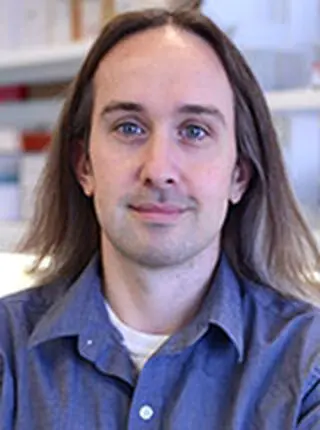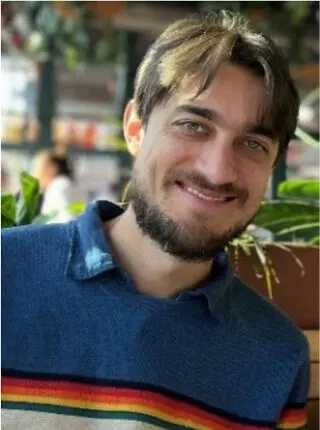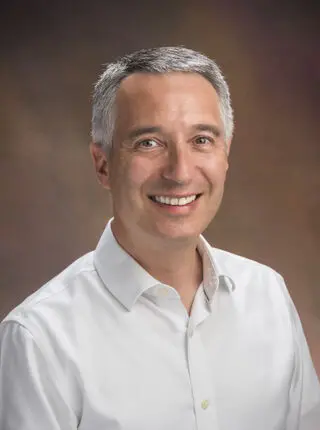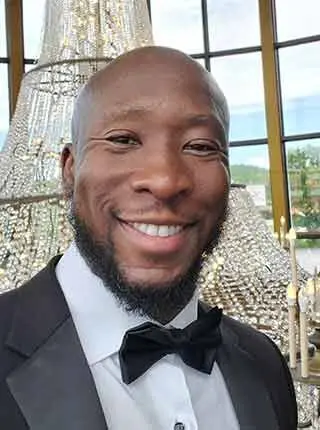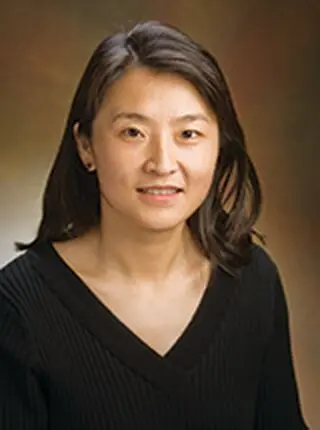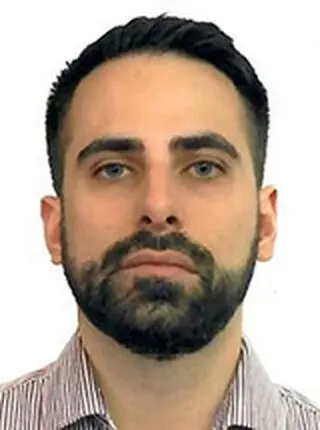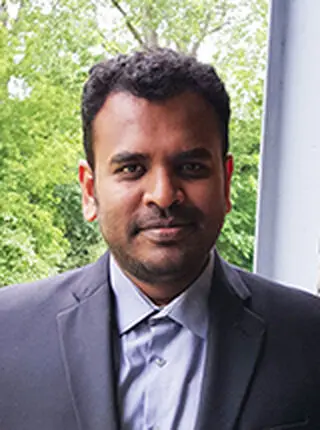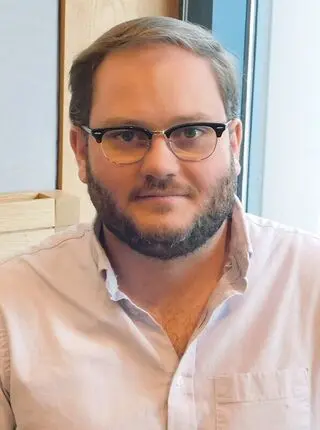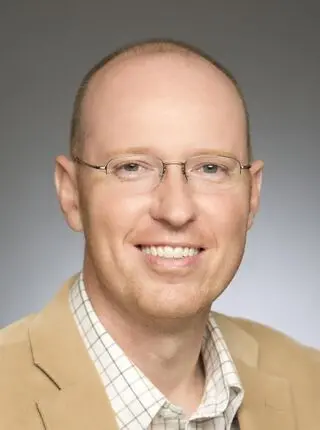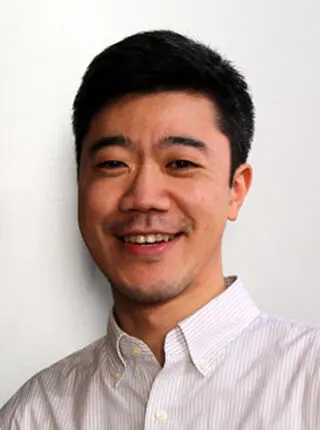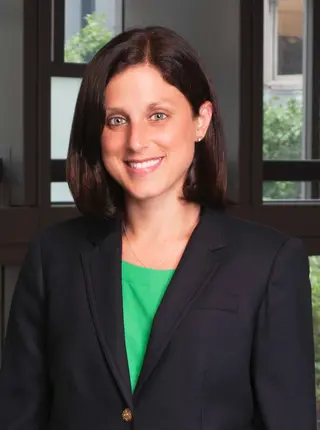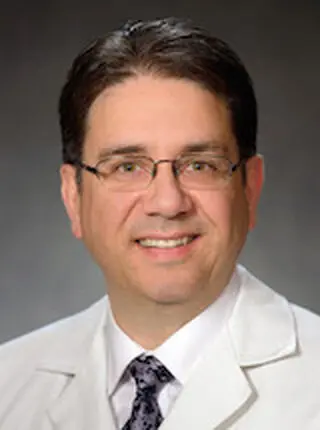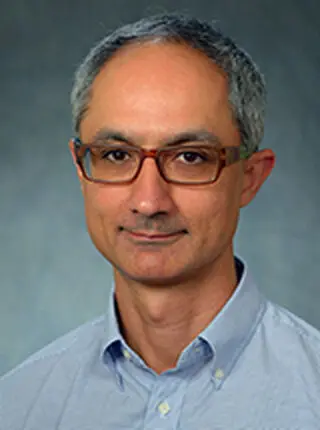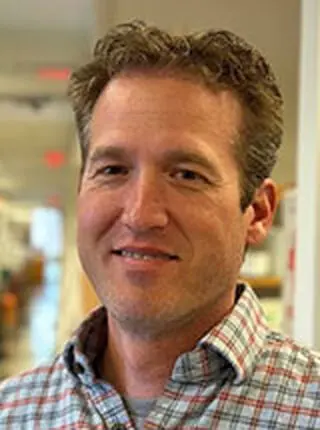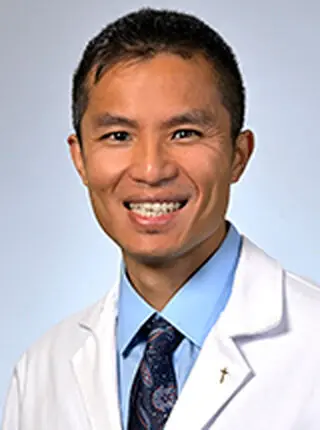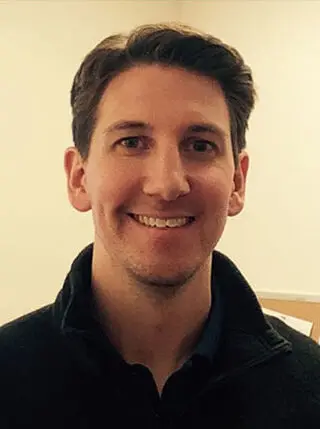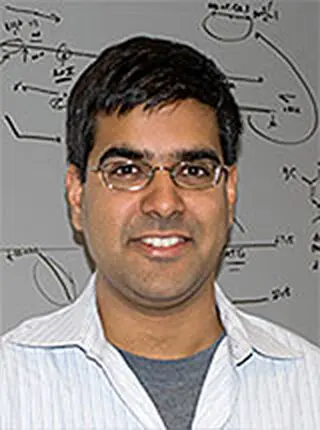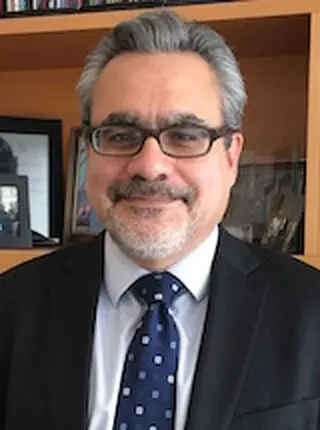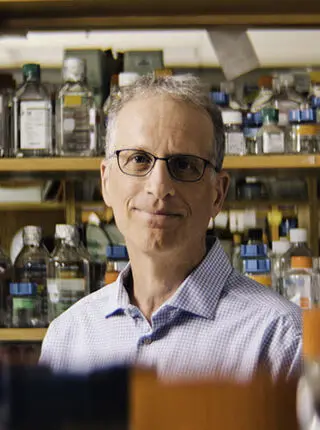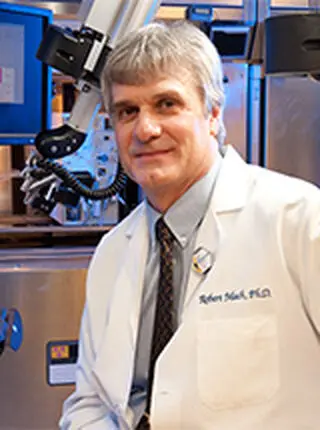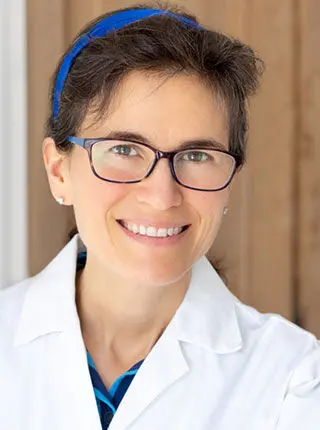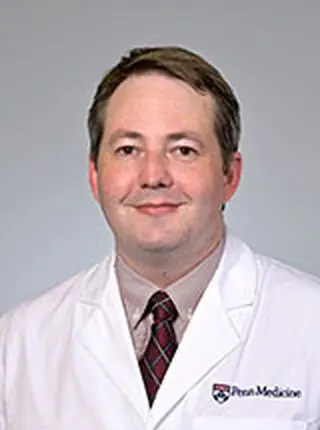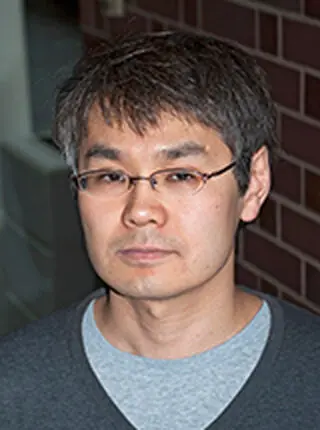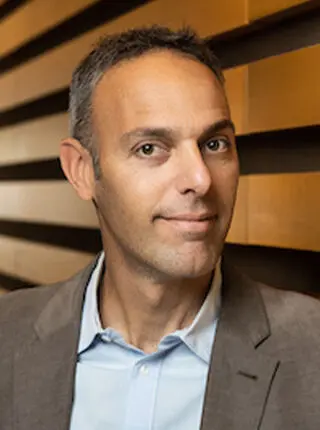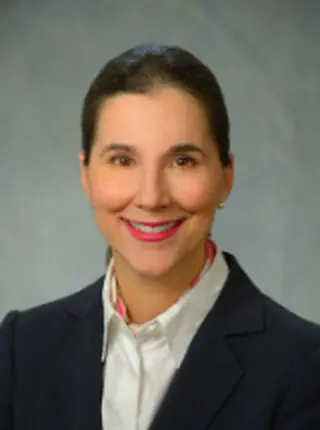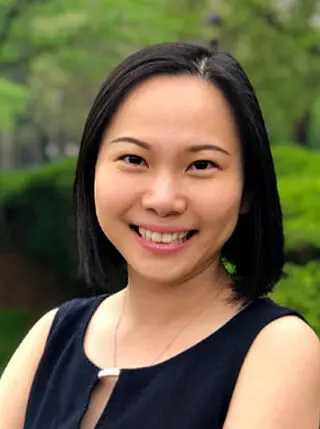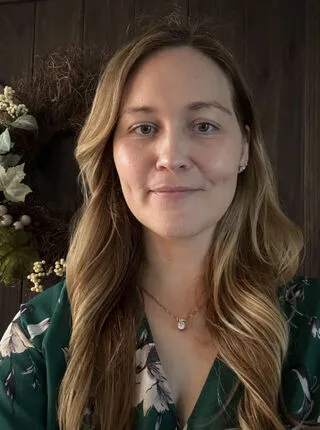Who we are
The PCGI consists of basic science investigators that would otherwise not frequently interact to promote the development of multi-investigator grants, shared resources, and translation of basic science into the clinic.
Leadership
-
Read More about Roger Greenberg, MD, PhD
Roger Greenberg, MD, PhD
Director
Roger Greenberg, MD, PhD
Director
Roger Greenberg, MD, PhD, is the J. Samuel Staub, M.D. Professor in the Department of Cancer Biology at the University of Pennsylvania Perelman School of Medicine, where he also serves as Director of the Penn Center for Genome Integrity and the Director of Basic Science for the Basser Center for BRCA. During Dr. Greenberg’s early training, he demonstrated the first evidence that telomere shortening suppresses carcinogenesis in vivo, and subsequently, he helped define a BRCA1-centered tumor suppressor network. Dr. Greenberg’s independent laboratory investigates basic mechanisms of genome integrity maintenance and their impact on cancer etiology and response to therapy. His group discovered that ubiquitin chains serve as a platform for BRCA1 DNA damage recognition, identified biallelic mutations in BRCA1 as a cause of Fanconi Anemia, and developed novel systems to identify ATM kinase dependent transcriptional silencing near DNA double-strand breaks. More recently, his group defined the molecular underpinnings of homologous recombination dependent telomere lengthening mechanisms that occur in nearly 15% of cancers, and mechanisms that enable DNA damage responses to communicate with the immune system.
Dr. Greenberg is a recipient of numerous awards, including the Michael Brown New Investigator Award for Basic Science, Kimmel Scholar Award in Translational Science, Charles E. Culpeper Scholarship in Medical Sciences, a Harrington Discovery Institute Scholar-Innovator Award, and the Stanley N. Cohen Award for Biomedical Research. He has also been elected to the American Society of Clinical Investigation and American Association of Physicians. Dr. Greenberg previously chaired the DNA Mechanisms of Cancer study section for the American Cancer Society and is now a member of the NIH Cancer Etiology Study Section.
-
Read More about Ben Black, PhD
Ben Black, PhD
Co-Director
Ben Black, PhD
Co-Director
Following undergraduate studies at Carleton College, Ben Black did a Ph.D. dissertation at the University of Virginia on pathways for nuclear protein export in the lab of Bryce Paschal. After a four-year postdoctoral fellowship with Don Cleveland at UCSD in the Ludwig Institute for Cancer Research, Ben started his own group at UPenn to continue the work he had started in the area of chromosome biology. Perhaps his best known work as an independent investigator is uncovering the physical basis for how nucleosomes containing the histone variant, CENP-A, epigenetically mark centromere location on the chromosome; and further, for helping elucidate how this nucleosome can seed new centromere assembly and maintain centromere location through a cell cycle-coupled self-propagation mechanism ultimately required to guide faithful chromosome inheritance.
At UPenn, Ben has also instructed or co-directed more than a dozen different courses in the Biomedical Graduate Studies (BGS) programs, School of Arts & Sciences, and Medical School. He has served on NIH review panels and as a reviewer for many national and international funding agencies. He is an Associate Editor of Science Advances and the Biochemical Journal, on the editorial board of Molecular & Cellular Biology, and serves as a reviewer for >25 scientific journals, including Nature, Science, and PNAS. He has given invited lectures at numerous universities and meetings in the USA and in more than a dozen foreign countries. He has been recognized for his work with a fellowship from the American Cancer Society, a Career Award in the Biomedical Sciences from the Burroughs Wellcome Fund, a Rita Allen Foundation Scholar Award, the Michael S. Brown New Investigator Award, the Charles E. Kaufman Foundation Initiative Award, and the inaugural Perelman School of Medicine Dean’s Innovation Award. Ben enjoys spending his free time with wife Emily and sons Zachary and Henry.
-
Read More about Kathy Fange Liu, PhD
Kathy Fange Liu, PhD
Co-Director
Kathy Fange Liu, PhD
Co-Director
Dr. Kathy Fange Liu obtained her Ph.D. from Georgia State University in 2013 and completed her postdoctoral training at the University of Chicago in 2017. She launched her independent laboratory in 2018 in the Department of Biochemistry and Biophysics at the University of Pennsylvania. The Liu Lab investigates the mechanisms and consequences of the interplay among multiple RNA modifications in mRNA, tRNA, and rRNA, with a focus on their roles in human disease. A second major focus of her lab is understanding how sex chromosome biology contributes to sex bias in human cancers. Dr. Liu is the recipient of several prestigious awards, including the NIH MIRA Award, American Cancer Society Research Scholar Award, Damon Runyon-Rachleff Innovation Award, Alex's Lemonade R accelerator Award, and the Linda Pechenik Montague Investigator Award. She is also a newly appointed Co-Director of the Penn Center for Genome Integrity (PCGI), where she will lead efforts focused on RNA-based mechanisms of genome integrity.
Core Investigators
-
Read More about Kara Bernstein, PhD
Kara Bernstein, PhD
Professor of Biochemistry and Biophysics
Kara Bernstein, PhD
Professor of Biochemistry and Biophysics
Dr. Bernstein graduated with a degree in biology from Bryn Mawr College, in Bryn Mawr, Pennsylvania (2000) and obtained a PhD in genetics and development under the guidance of Dr. Susan Baserga studying ribosome biogenesis from Yale University in New Haven, Connecticut (2006). She did postdoctoral work with Dr. Rodney Rothstein studying genetic recombination at Columbia University, in New York, NY (2006-2011). In 2011, Dr. Bernstein moved to the University of Pittsburgh School of Medicine in Pittsburgh, Pennsylvania where she established a productive and well-funded lab focusing on error-free mechanisms of DNA repair and recombination. In 2022, she moved to the University of Pennsylvania Abramson School of Medicine and established her lab in Biochemistry and Biophysics. The Bernstein labs focuses on proteins that contribute to cancer development and studies how accurate repair of DNA double-strand breaks is regulated using budding yeast and mammalian systems. Dr. Bernstein currently holds faculty appointments in the Department of Biochemistry and Biophysics, in the Abramson Cancer Center in the Breast Cancer Research Program, in the Basser Center for BRCA related research, and in the Center of Excellence in Environmental Toxicology in the Environmental Exposures and Cancer Program.
-
Read More about Luca Busino, PhD
Luca Busino, PhD
Associate Professor of Cancer Biology
Luca Busino, PhD
Associate Professor of Cancer Biology
Dr. Luca Busino is an Associate Professor of Cancer Biology at UPenn's Perelman School of Medicine. He earned a PhD in Biomolecular Sciences at The European Institute of Oncology in Milan, Italy, and subsequently completed post-doctoral training at New York University. The Busino lab focuses on investigating the mechanisms through which the ubiquitin-proteasome system (UPS) regulates cell proliferation and how disruptions in these processes contribute to tumor initiation and maintenance. The laboratory's primary research areas include: (i) Functional discoveries in the realm of the ubiquitin system and hematologic diseases, with an emphasis on characterizing the molecular functions of cancer-associated mutant ubiquitin ligases. (ii) Development of high-throughput assays to identify small molecules targeting ubiquitin ligase-substrate interactions, with the goal of establishing a screening platform for targeting specific ligase-substrate interactions.
-
Read More about Ahmed Diab, PhD
Ahmed Diab, PhD
Assistant Professor of Otorhinolaryngology
Ahmed Diab, PhD
Assistant Professor of Otorhinolaryngology
Dr. Diab obtained his degree in biology from the American University in Cairo, Egypt. He received his PhD in Cancer Biology from Purdue University where he studied how hepatitis B virus (HBV) disrupts cell cycle machinery during liver carcinogenesis. He was also a Chateaubriand fellow at INSERM Lyon, France, where he studied the interplay between HBV replication and host cell cycle. Dr. Diab went on to do his postdoctoral training at the Fred Hutchinson Cancer Center in Seattle, WA. Dr. Diab’s postgraduate training focused on understanding the interplay between human papilloma virus (HPV) infection and DNA damage checkpoint deregulation in head and neck cancer. Current work in the Diab laboratory focuses on how human papilloma virus infection causes genomic instability and alters the larger tumor microenvironment of head and neck cancers. Dr. Diab is a member of the Abramson Cancer Center Cancer Therapeutics Program, the Institute for Immunology & Immune Health (I3H), and the Institute of Translational Medicine and Therapeutics at the University of Pennsylvania Perelman School of Medicine.
-
Read More about Dennis E. Discher, PhD
Dennis E. Discher, PhD
Robert D. Bent Professor of Chemical and Biomolecular Engineering
Dennis E. Discher, PhD
Robert D. Bent Professor of Chemical and Biomolecular Engineering
Dr. Dennis Discher is the Robert D. Bent chaired Professor and Professor of Chemical and Biomolecular Engineering, Bioengineering, and Mechanical Engineering and Applied Mechanics here at UPenn in the School of Engineering and Applied Science. Dr. Discher's lab pioneered studies of matrix elasticity directed stem cell differentiation, clarifying the effects on cells of a tissue stiffness scale illustrated as: brain < fat < muscle < bone. His lab was the first to measure and model nuclear mechanics in relation to mechanosensing, developing ‘omics methods and analytics to uncover scaling relationships between matrix and nuclear factors, including chromosome variations. His lab discovered the ‘phagocytic synapse’ between a macrophage and a cell displaying on its membrane or not a ‘marker of self’ protein that – with controlled inhibition – allows macrophages to be targeted to attack diseased tissue.
Dr. Discher obtained his Ph.D. from the University of California, Berkeley in the lab of Dr. Mohandas in 1993. He went on to complete his postdoctoral fellowship in Statistical Biophysics Simon Fraser University, British Columbia, Canada in the laboratory of Dr. Evans in 1996. That same year he came to Penn as an Assistant Professor, establishing his lab and continuing to gain prominence until achieving full Professorship with tenure in 2004. He was named Robert D. Bent chaired Professor in 2011. In addition, he is the Director of Penn’s Physical Sciences Oncology Center, PSOC@Penn – a National Cancer Institute U54 Center, and the Head of Biophysical Engineering Labs in Molecular & Cell Biophysics and NanoBio-Polymers.
-
Read More about Matthew Good
Matthew Good
Associate Professor of Cell & Developmental Biology
Matthew Good
Associate Professor of Cell & Developmental Biology
Matthew Good is an Associate Professor in the department of Cell and Developmental Biology in the Perelman School of Medicine with a secondary appointment in the department of Bioengineering in the Penn School of Engineering and Applied Science. The Good lab is interested in the unique cell biology of early development, including the blastula cell division cycle and mechanisms regulating zygotic genome activation. Additionally, the lab is interested in the self-assembly and subcellular partitioning of proteins to form membraneless organelles, such as germ granules and stress granules and DNA repair condensates. Dr. Good received his PhD from UCSF in 2010 and was a Miller Fellow at UC Berkeley.
-
Read More about Malay Haldar, MD, PhD
Malay Haldar, MD, PhD
Associate Professor of Pathology and Laboratory Medicine
Malay Haldar, MD, PhD
Associate Professor of Pathology and Laboratory Medicine
Malay is an associate professor in the department of Pathology and laboratory medicine as well as an investigator in the Abramson family cancer research institute. The Haldar lab studies the development and function of mononuclear phagocytes in health and diseases. His lab is particularly interested in how these innate immune cells shape anti-tumor immune responses with the overarching goal of targeting them for cancer immunotherapy. Malay went to medical school in Pune, India and then completed a PhD in human genetics at the University of Utah. He also completed his clinical residency and postdoctoral research training at the Washington University school of medicine in St. Louis.
-
Read More about Michael Lampson, PhD
Michael Lampson, PhD
Professor of Biology
Michael Lampson, PhD
Professor of Biology
Dr. Michael Lampson is a Professor of Biology at UPenn's School of Arts and Sciences. The Lampson Lab researches a variety of questions related to the cell cycle, cell division, and chromosome evolution using both mitotic and meiotic model systems. Dr. Lampson received his PhD from Cornell University Weill Cornell Medical College in 2002.
-
Read More about Mia Levine, PhD
Mia Levine, PhD
Associate Professor of Biology
Mia Levine, PhD
Associate Professor of Biology
Dr. Mia Levine is an Associate Professor in the Department of Biology and the Epigenetics Institute at the University of Pennsylvania. Mia received her PhD from the University of California, Davis under the mentorship of Dr. David Begun and conducted postdoctoral work with Dr. Harmit Malik at the Fred Hutchinson Cancer Research Center. The Levine Lab investigates molecular arms races that play out between selfish genetic elements and host genomes. These conflicts shape fundamental cellular processes, such as telomere length homeostasis, chromosome transmission, and the maintenance of DNA sequence integrity. Recent work revealed that recurrent evolutionary innovation of essential chromosomal proteins is required to maintain these essential functions in the face of selfish element proliferation.
-
Read More about Qin Li, PhD
Qin Li, PhD
Assistant Professor of Genetics
Qin Li, PhD
Assistant Professor of Genetics
Dr. Qin Li is an Assistant Professor in the Department of Genetics at the University of Pennsylvania Perelman School of Medicine. Qin received his Ph.D. in Biochemistry and Molecular Biology from Peking University. He then did his postdoctoral research at Stanford University with Dr. Billy Li, focusing on A-to-I RNA editing. He made the surprising discovery that insufficient A-to-I RNA editing is a major risk factor underlying a wide range of inflammatory diseases. Qin launched his lab at Penn in 2024. The Li lab focuses on understanding the genetic basis of RNA recognition and the diseases caused by erroneous self RNA sensing. Specifically, we are interested in: (1) mechanisms that help endogenous RNAs evade immune sensing, (2) identifying immunogenic RNAs that initiate self-sensing and subsequent inflammation in diseases, and (3) developing new gene editing tools by harnessing endogenous RNA editing machinery.
-
Read More about Andrew Modzelewski, PhD
Andrew Modzelewski, PhD
Assistant Professor of Molecular Biology, Biomedical Sciences, University of Pennsylvania School of Veterinary Medicine
Andrew Modzelewski, PhD
Assistant Professor of Molecular Biology, Biomedical Sciences, University of Pennsylvania School of Veterinary Medicine
Dr. Andrew J. Modzelewski (Dr. Modz) is an Assistant Professor of Molecular Biology in the Department of Biomedical Sciences at the University of Pennsylvania School of Veterinary Medicine. Dr. Modz received his B.S. from Penn State University with a major in Biochemistry and Molecular Biology. He then went to Cornell University for his Ph.D. in Genetics, Genomics and Development with Dr. Paula Cohen, where he developed an interest in reproduction and development with a special interest in non-coding RNAs. Dr. Modz did his postdoc at the University of California at Berkeley with Dr. Lin He, an expert on miRNAs and Cancer, but shifted to early embryos and ancient viral elements (retrotransposons). Dr. Modz modified and developed various tools to study the phenomenon of Retrotransposon Reactivation that occurs in all mammalian preimplantation embryos. One of these tools is an electroporation based CRISPR/Cas9 delivery system called “CRISPR RNP Electroporation of Zygotes” (CRISPR-EZ). Despite being called “Junk DNA”, Dr. Modz published evidence of the first essential retrotransposon in mammalian preimplantation development, suggesting instead a “symbiotic” instead of parasitic relationship. At Penn, Dr. Modz plans to further study the developmental roles of retrotransposon reactivation in the early embryo and reproduction and extend this to instances of epigenetic breakdown that occurs in aging, disease, and cancer, where retrotransposons frequently re-emerge and potentially contribute to malignancy.
-
Read More about Guilherme P.F. Nader, PhD
Guilherme P.F. Nader, PhD
Assistant Professor of Pathology & Laboratory Medicine, CHOP
Guilherme P.F. Nader, PhD
Assistant Professor of Pathology & Laboratory Medicine, CHOP
Dr. Nader received his B.S. from University of Sao Paulo, Brazil with a major in Biology. Subsequently, he obtained his Master’s degree in Cell and Molecular Biology from the same University, where he studied the role of actin-associated motors during cell motility. Following his training in Brazil, Dr. Nader moved to New York City, USA where he obtained his PhD degree from Columbia University. During his PhD studies, he examined focal adhesion turnover and integrin recycling in migrating cells. Upon completion of his PhD, Dr. Nader moved to Paris, France for his postdoctoral studies at Institute Curie. By combining microfabricated and microfluidics devices with microscopy and cell biology approaches, he investigated the role played by nuclear mechanosensing pathways in different migratory strategies, cell function and fate. In 2023, he started his own lab in the Department of Pathology and Laboratory Medicine of Children’s Hospital of Philadelphia Research Institute and the University of Pennsylvania Perelman School of Medicine. He also holds a secondary faculty appointment in the Department of Cell and Developmental Biology.
-
Read More about Matthew Weitzman, PhD
Matthew Weitzman, PhD
Professor of Microbiology, Professor of Pathology and Laboratory Medicine
Matthew Weitzman, PhD
Professor of Microbiology, Professor of Pathology and Laboratory Medicine
Dr. Weitzman graduated with a degree in genetics from the University of Leeds, UK (1987) and obtained a PhD in molecular virology from Oxford Polytechnic and the NERC Institute of Virology and Environmental Microbiology in Oxford, UK (1991). He did postdoctoral work on a Fogarty Visiting Fellowship at the NIH (1991-1993) and as a Cystic Fibrosis Postdoctoral Fellow (1994-1995) in the Institute for Human Gene Therapy, at the University of Pennsylvania. In 1997 he moved to the Salk Institute in La Jolla, California where he established a productive and well-funded lab. In 2011 he moved to The Children’s Hospital of Philadelphia and established his lab in Cancer Pathobiology. He currently holds faculty appointments in the Departments of Pathology & Laboratory Medicine, Pediatrics, and Microbiology within the Perelman School of Medicine at the University of Pennsylvania.
-
Read More about Sunny Shin, PhD
Sunny Shin, PhD
Associate Professor of Microbiology
Sunny Shin, PhD
Associate Professor of Microbiology
Dr. Sunny Shin is an Associate Professor of Microbiology in UPenn's Perelman School of Medicine. She obtained her PhD in Microbiology and Immunology at Stanford University School of Medicine under mentor Dr. Yueh-hsiu Chien. The Shin lab studies how the immune system distinguishes self from non-self and tailors appropriate inflammatory responses, with a focus on pattern recognition receptors and cytosolic immune sensing pathways. One key immune pathway involves the inflammasome, a multi-protein cytosolic complex that activates the host proteases caspase-1 and caspase-11 upon cytosolic detection of bacterial products. These caspases mediate the release of IL-1 family cytokines and other inflammatory factors critical for host defense against a variety of pathogens, but overexuberant activation can lead to pathological outcomes such as septic shock.
-
Read More about Cornelius Y. Taabazuing, PhD
Cornelius Y. Taabazuing, PhD
Presidential Assistant Professor of Biochemistry and Biophysics
Cornelius Y. Taabazuing, PhD
Presidential Assistant Professor of Biochemistry and Biophysics
Dr. Cornelius Taabazuing earned his B.S in Biochemistry and Molecular Biology and his Ph.D. in Biological Chemistry from the University of Massachusetts Amherst. He then conducted his postdoctoral work in the Chemical Biology department at Memorial Sloan-Kettering Cancer Center. Dr. Taabazuing is currently a Presidential Assistant Professor in the Department of Biochemistry and Biophysics at the University of Pennsylvania. The focus of his lab is to uncover the molecular mechanisms of cell death pathways, particularly, apoptosis and pyroptosis. Apoptosis and pyroptosis are carried out by large multiprotein signaling complexes. The lab is interested in understanding the triggers that initiate the signaling complex formation, the mechanisms of how the signaling complexes assemble, and the biological processes they regulate.
-
Read More about Wei Tong, PhD
Wei Tong, PhD
Professor of Pediatrics
Wei Tong, PhD
Professor of Pediatrics
Dr. Wei Tong holds dual appointments as an Associate Professor of Pediatrics in UPenn's Perelman School of Medicine and an Associate Professor in the Division of Hematology at The Children's Hospital of Philadelphia. She received her PhD in Developmental and Molecular Biology at Albert Einstein College of Medicine. Dr. Tong completed her postdoctoral fellowship at the Whitehead Institute for Biomedical Research at MIT. The Tong lab investigates the mechanisms that safeguard the genome during DNA replication and proper control of cytokine signaling transduction to maintain stem cell fitness. In addition, the lab investigates how failures in these processes impact hematopoietic stem cell function that leads to bone marrow failure and/or leukemia.
PCGI Faculty
-
-
-
Igor E. Brodsky, AB, PhD
Robert R. Marshak Professor & Chair, Department of Pathobiology, School of Veterinary Medicine
View Faculty Profile
Igor E. Brodsky, AB, PhD
Robert R. Marshak Professor & Chair, Department of Pathobiology, School of Veterinary Medicine
View Faculty Profile
-
-
-
-
-
Jennifer E. Phillips-Cremins, PhD
Associate Professor Dean's Faculty Fellow in Bioengineering and Genetics
View Faculty Profile
Jennifer E. Phillips-Cremins, PhD
Associate Professor Dean's Faculty Fellow in Bioengineering and Genetics
View Faculty Profile
-
Susan M. Domchek, MD, FASCO
Basser Professor in Oncology, Executive Director, Basser Center for BRCA
View Faculty Profile
Susan M. Domchek, MD, FASCO
Basser Professor in Oncology, Executive Director, Basser Center for BRCA
View Faculty Profile
-
Ronny Drapkin, MD, PhD
Franklin Payne Associate Professor of Pathology in Obstetrics & Gynecology
View Faculty Profile
Ronny Drapkin, MD, PhD
Franklin Payne Associate Professor of Pathology in Obstetrics & Gynecology
View Faculty Profile
-
Robert Babak Faryabi, PhD
Associate Professor of Pathology and Laboratory Medicine
View Faculty Profile
Robert Babak Faryabi, PhD
Associate Professor of Pathology and Laboratory Medicine
View Faculty Profile
-
-
-
-
-
-
Constantinos Koumenis, PhD
Richard H. Chamberlain Professor of Research Oncology
View Faculty Profile
Constantinos Koumenis, PhD
Richard H. Chamberlain Professor of Research Oncology
View Faculty Profile
-
Paul M. Lieberman, PhD
Hilary Koprowski, M.D., Endowed Professor and Program Leader, Gene Expression & Regulation Program, Ellen and Ronald Caplan Cancer Center
View Faculty Profile
Paul M. Lieberman, PhD
Hilary Koprowski, M.D., Endowed Professor and Program Leader, Gene Expression & Regulation Program, Ellen and Ronald Caplan Cancer Center
View Faculty Profile
-
-
Elizabeth McDonald, MD, PhD
Associate Professor of Radiology at the Hospital of the University of Pennsylvania
View Faculty Profile
Elizabeth McDonald, MD, PhD
Associate Professor of Radiology at the Hospital of the University of Pennsylvania
View Faculty Profile
-
-
-
Katherine L. Nathanson, MD
Pearl Basser Professor for BRCA-Related Research at the Abramson Cancer Center of the University of Pennsylvania
View Faculty Profile
Katherine L. Nathanson, MD
Pearl Basser Professor for BRCA-Related Research at the Abramson Cancer Center of the University of Pennsylvania
View Faculty Profile
-
Nicolas D. Plachta, PhD
William Richard Gordon President's Distinguished Professor in Genetics
View Faculty Profile
Nicolas D. Plachta, PhD
William Richard Gordon President's Distinguished Professor in Genetics
View Faculty Profile
-
Kavitha Sarma, PhD
Associate Professor, Gene Expression & Regulation Program, Ellen and Ronald Caplan Cancer Center, The Wistar Institute
View Faculty Profile
Kavitha Sarma, PhD
Associate Professor, Gene Expression & Regulation Program, Ellen and Ronald Caplan Cancer Center, The Wistar Institute
View Faculty Profile
-
-
Fiona Simpkins, MD
Hilarie L. and Mitchell L. Morgan President's Distinguished Professor in Women's Health
View Faculty Profile
Fiona Simpkins, MD
Hilarie L. and Mitchell L. Morgan President's Distinguished Professor in Women's Health
View Faculty Profile
-
-
Administration
-
Read More about Laura Murillo
Laura Murillo
Director of Administration
murillo@upenn.edu
215-573-0908
Laura Murillo graduated from Emerson College in Boston, MA in 2005 with a Bachelor of Fine Arts. She then spent a year in New York City working as an Editorial Assistant on the website EuroCheapo.com. Laura provided administrative support to Drs. Eric J. Brown, Roger A. Greenberg, and Ben Z. Stanger and their labs from 2007-2019, during which time she also coordinated two seminar series, managed three websites, and several symposia for the Penn Pancreatic Cancer Research Center (PCRC) and the Abramson Family Cancer Research Institute (AFCRI). She is now the Administrative Director for the Penn Center for Genome Integrity (PCGI) supporting Center operations, symposia, retreats, and the Greenberg Lab.


